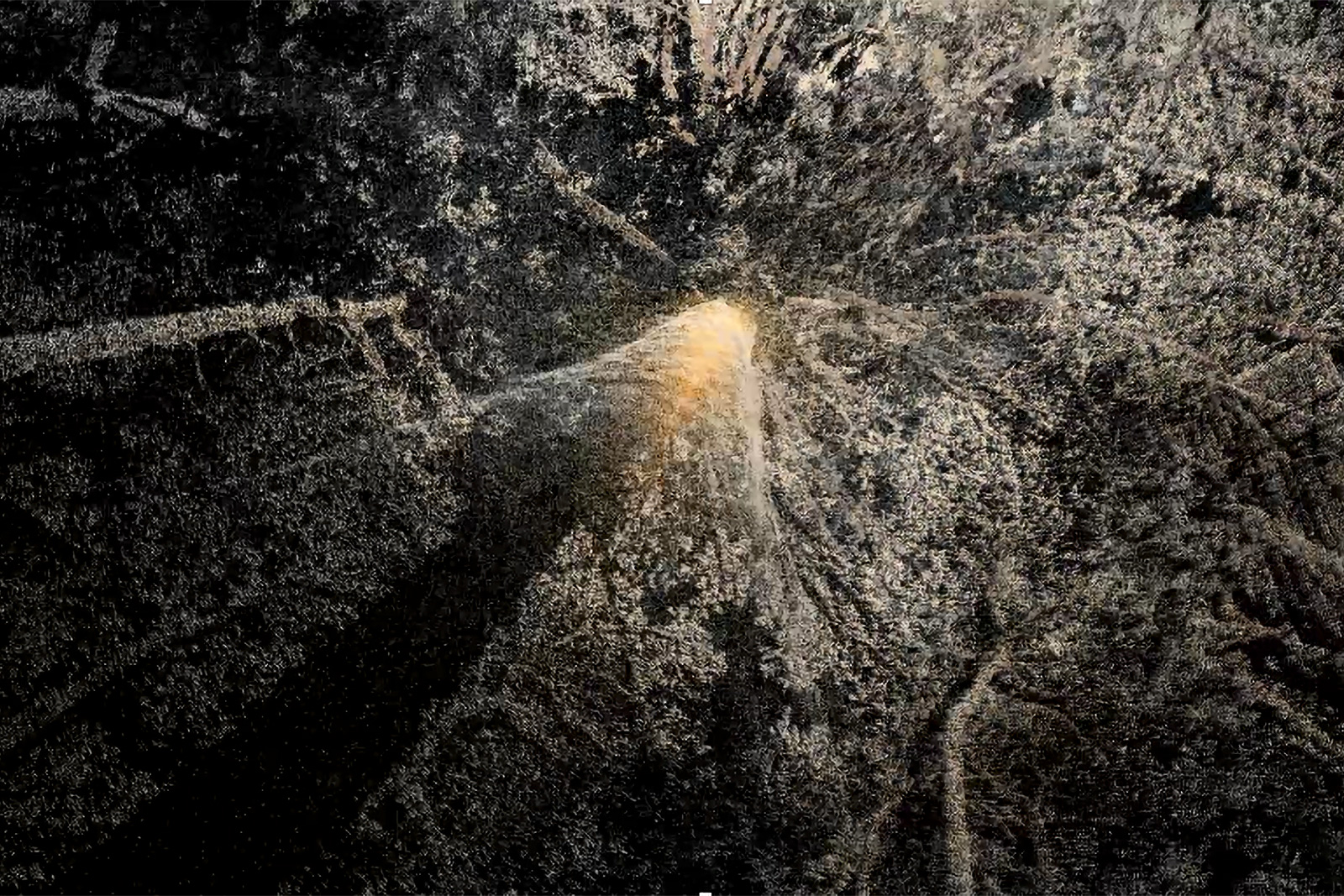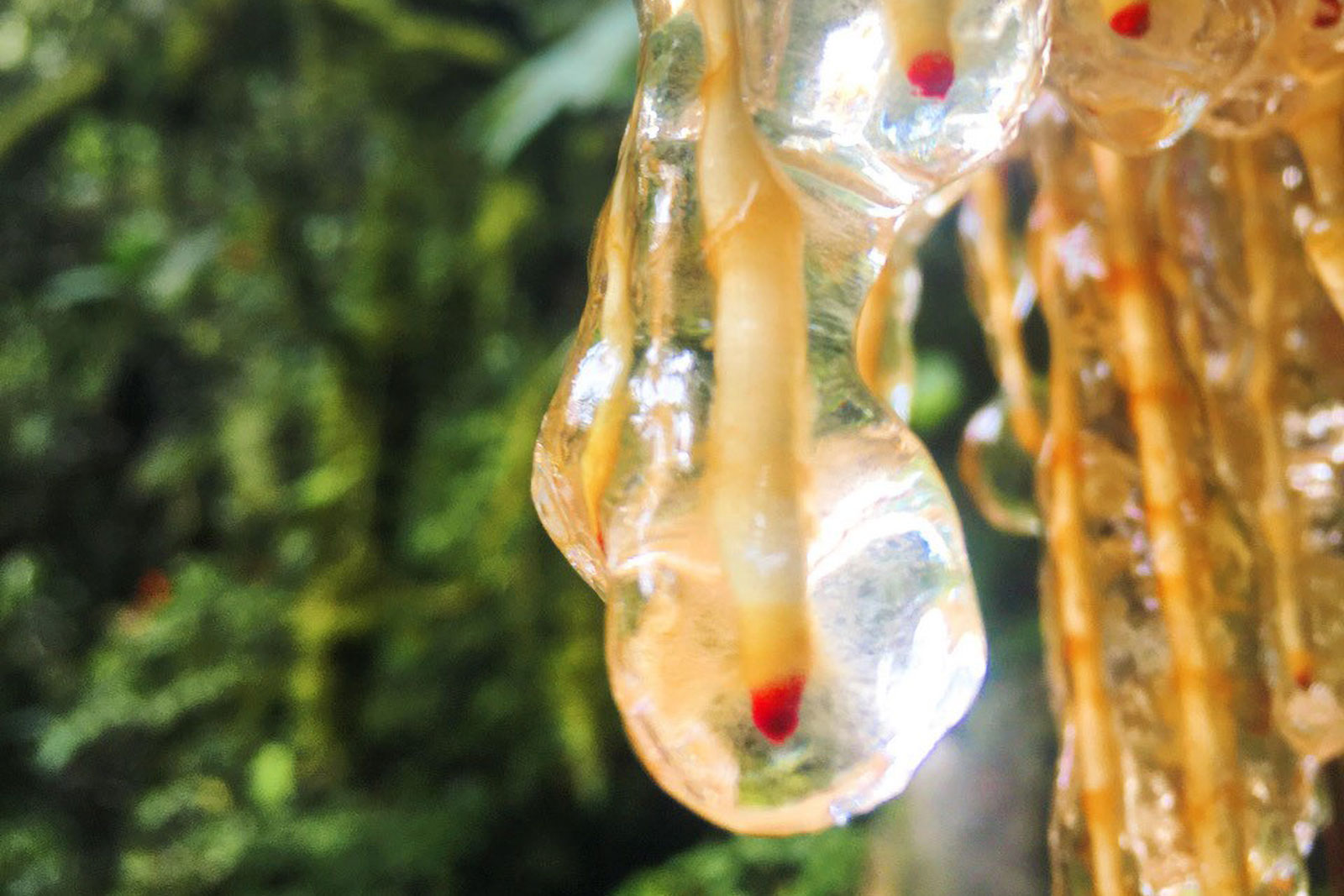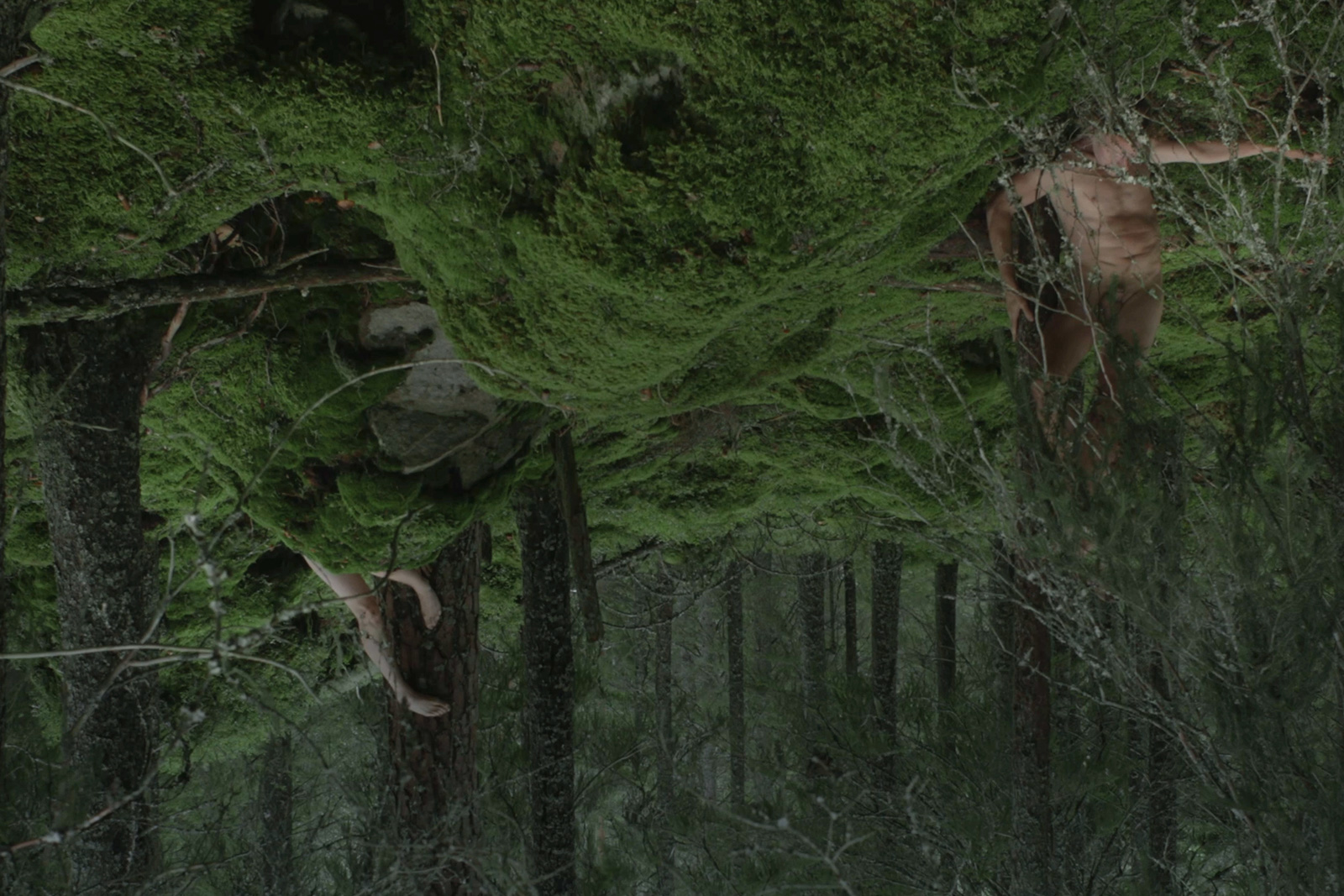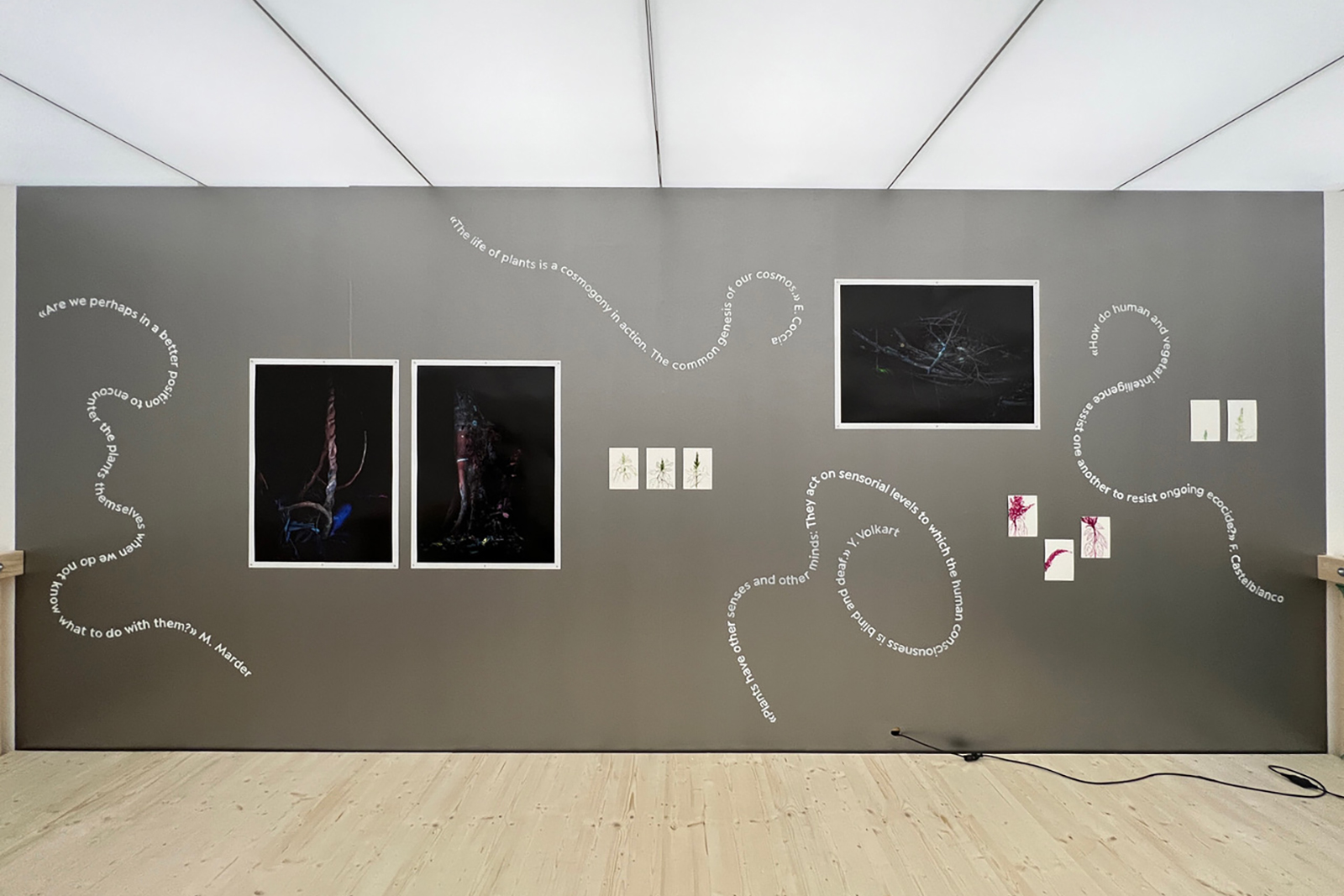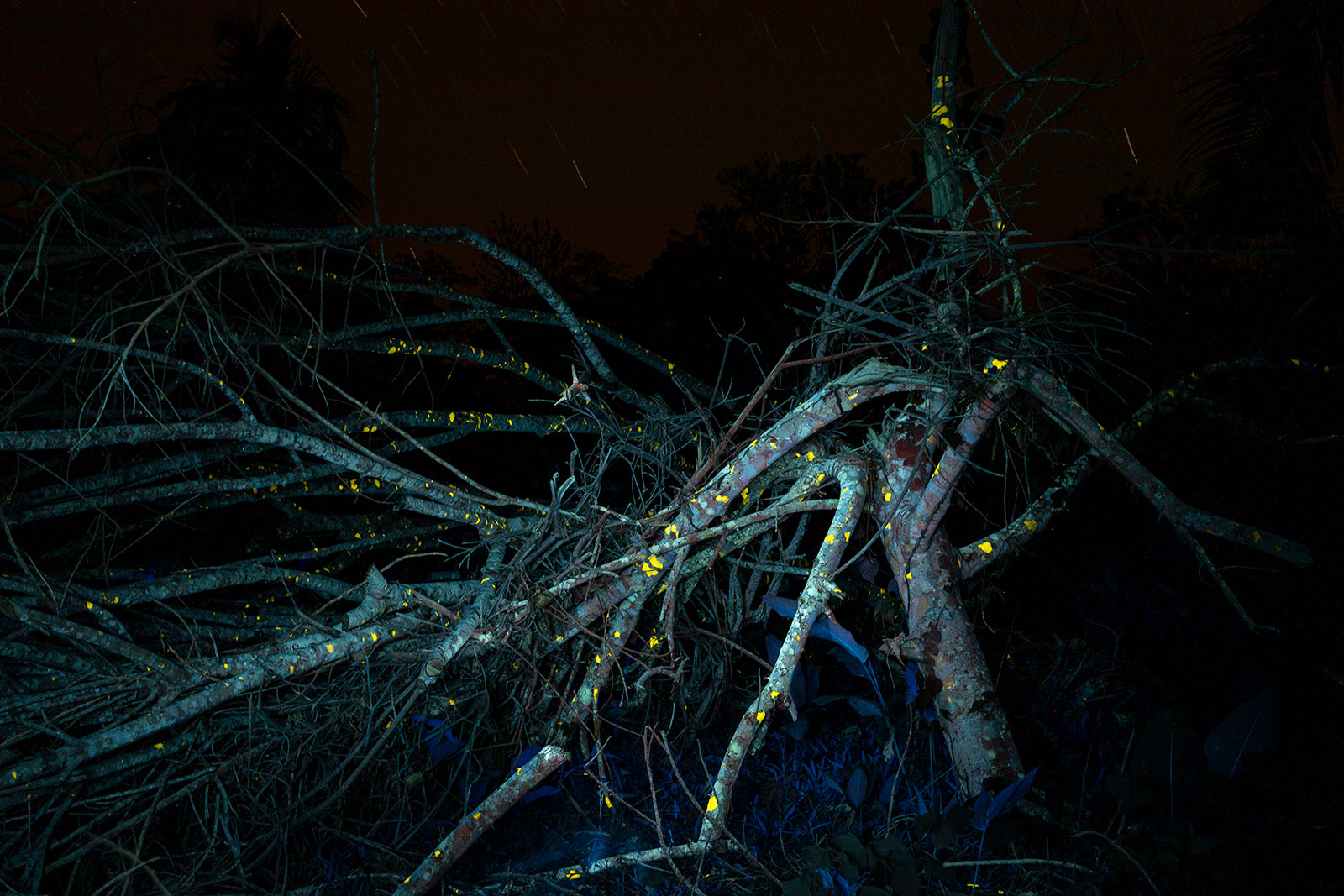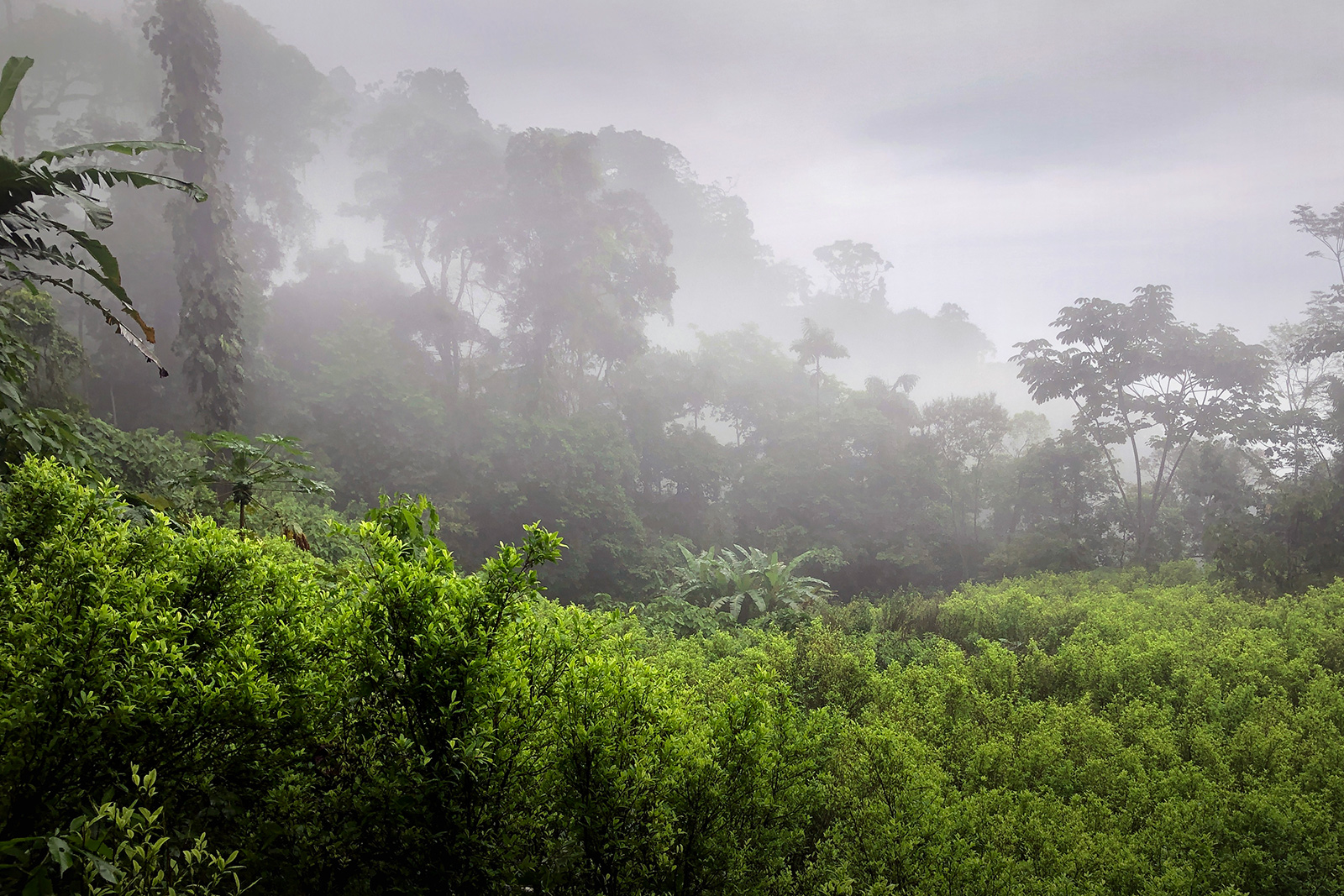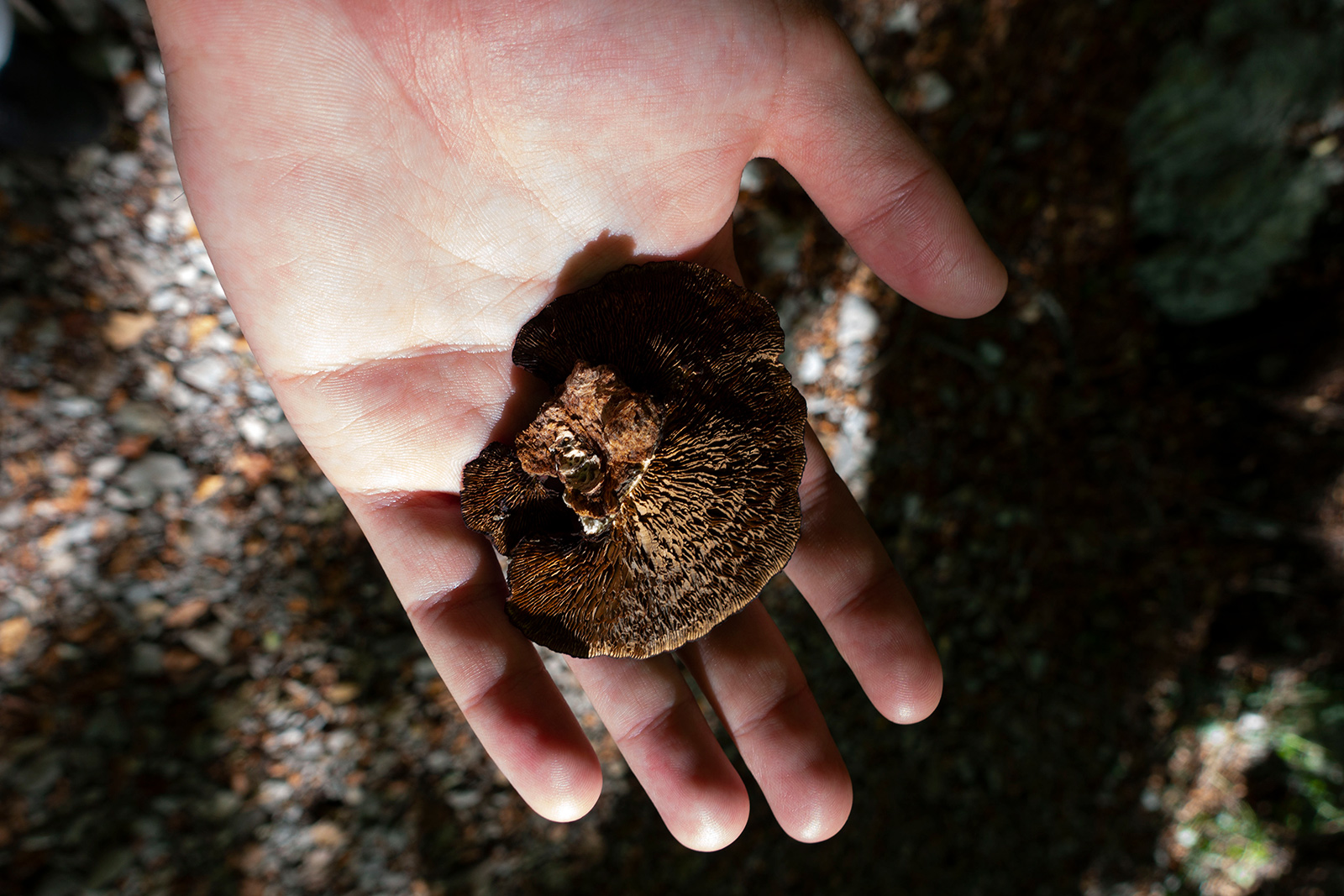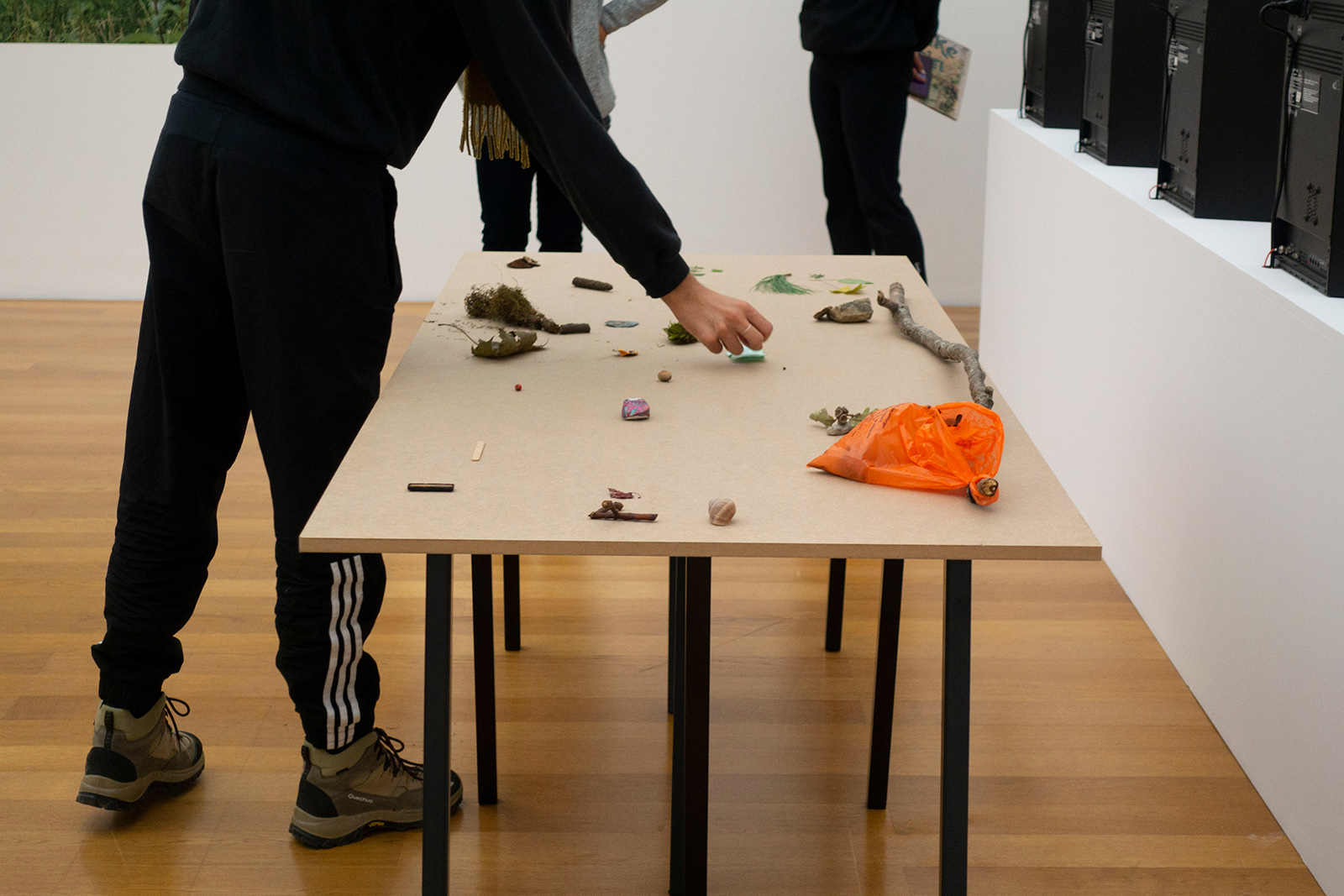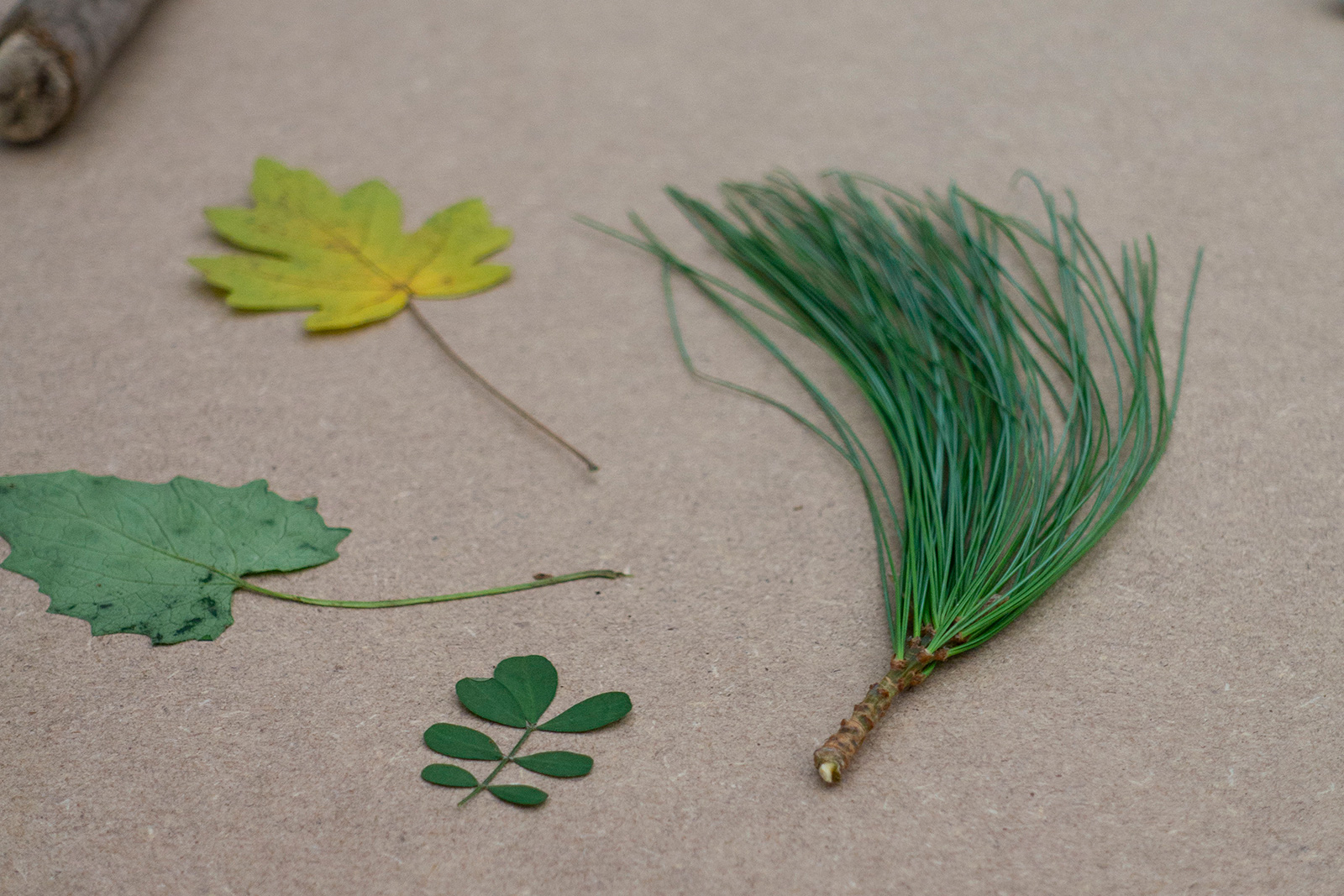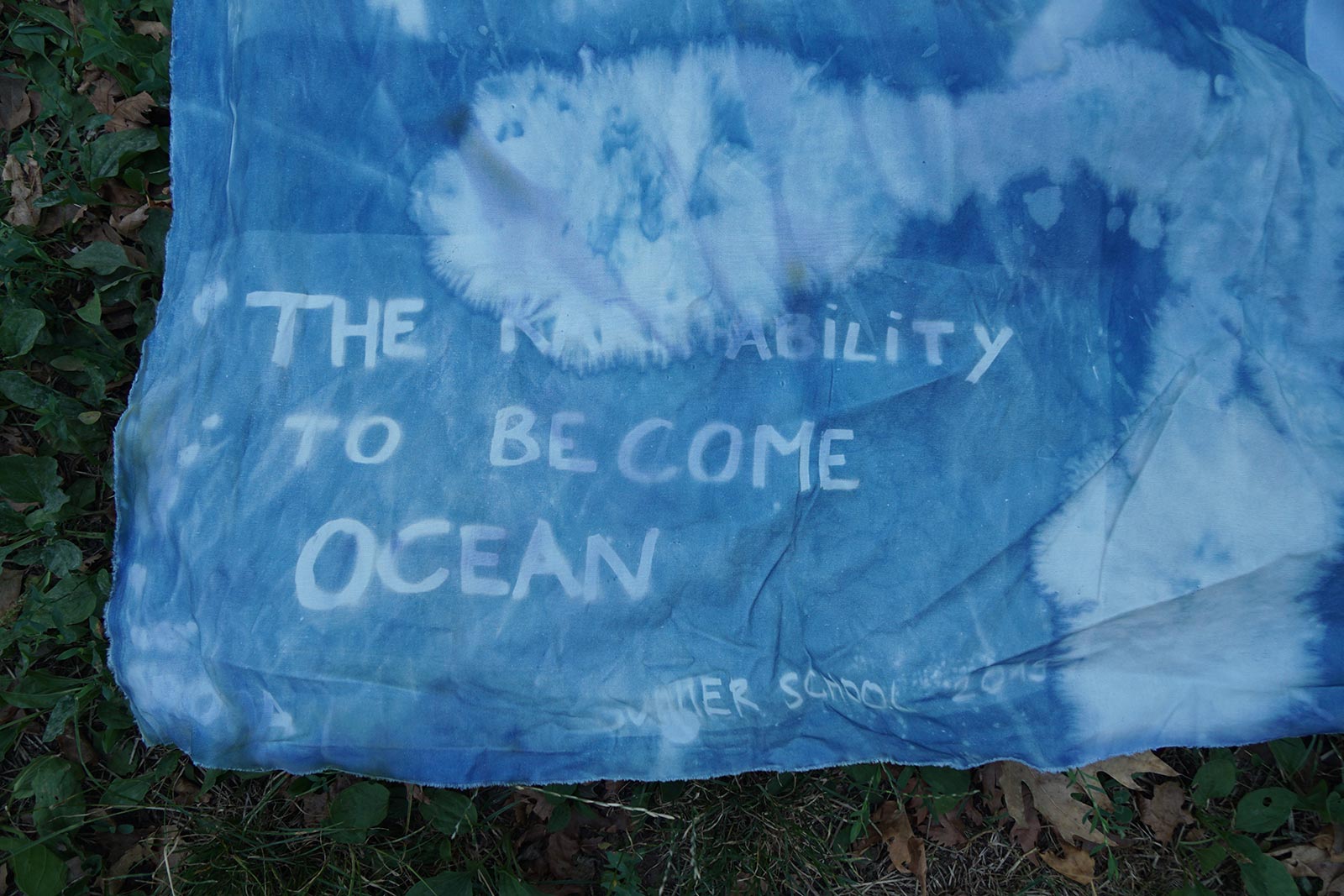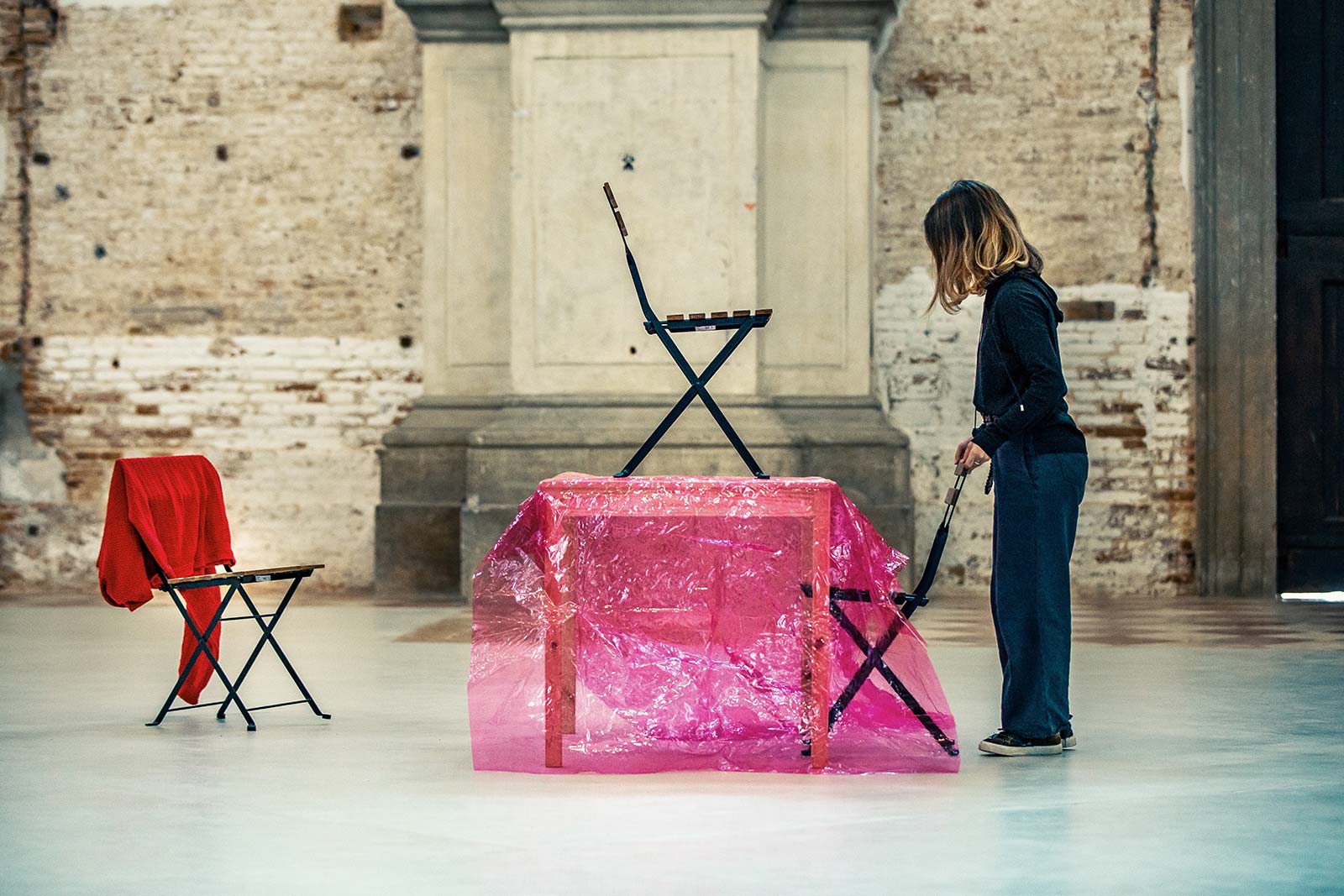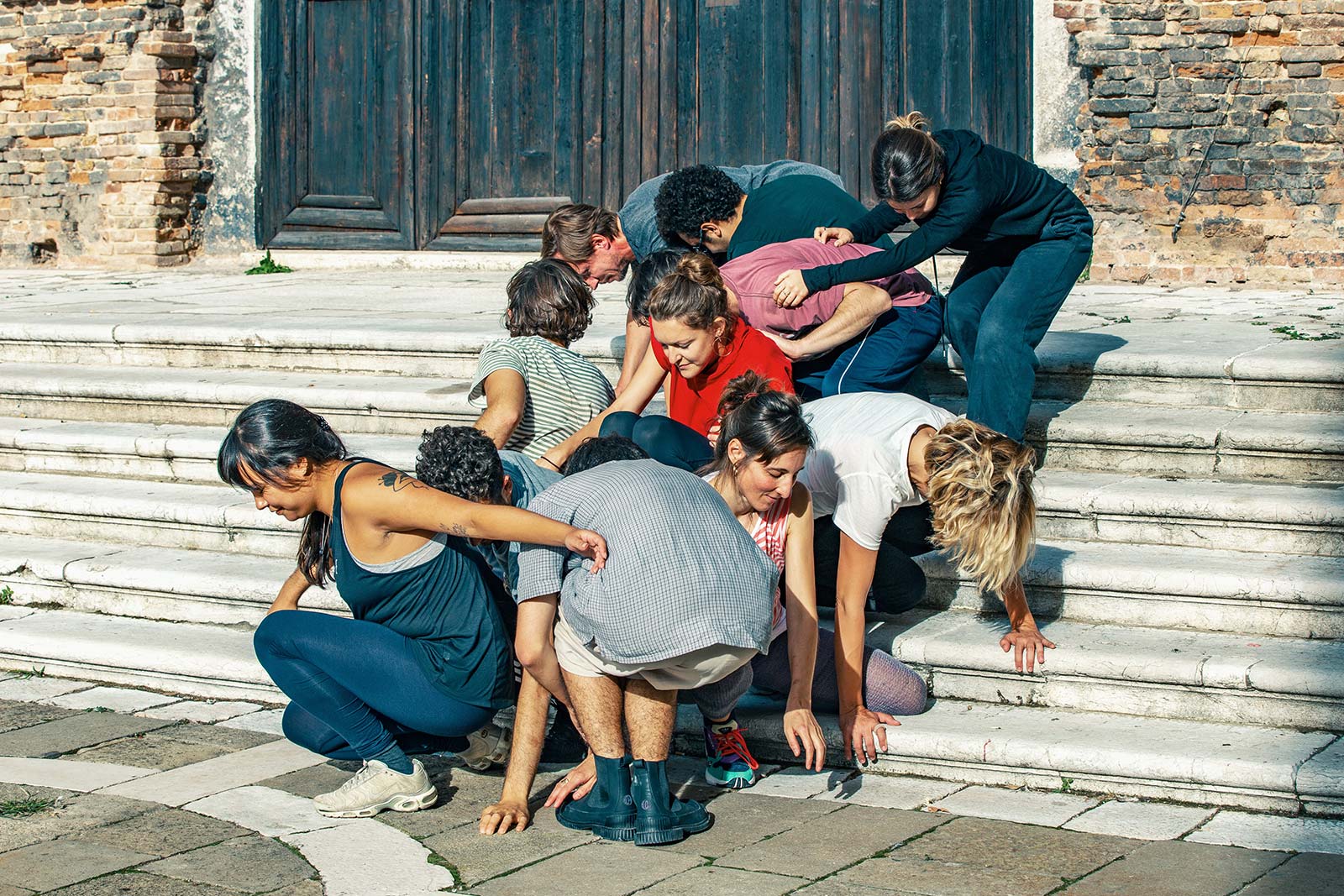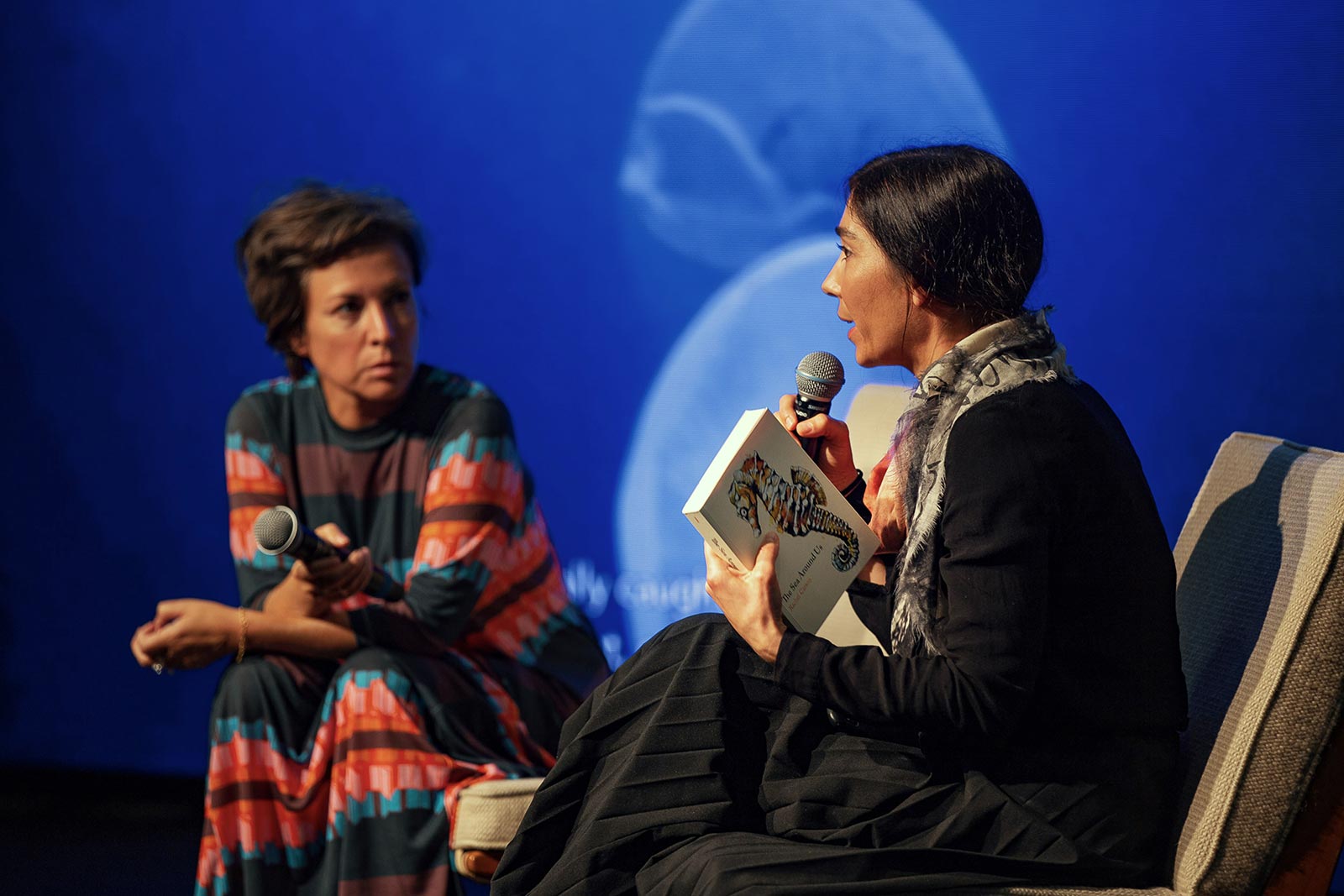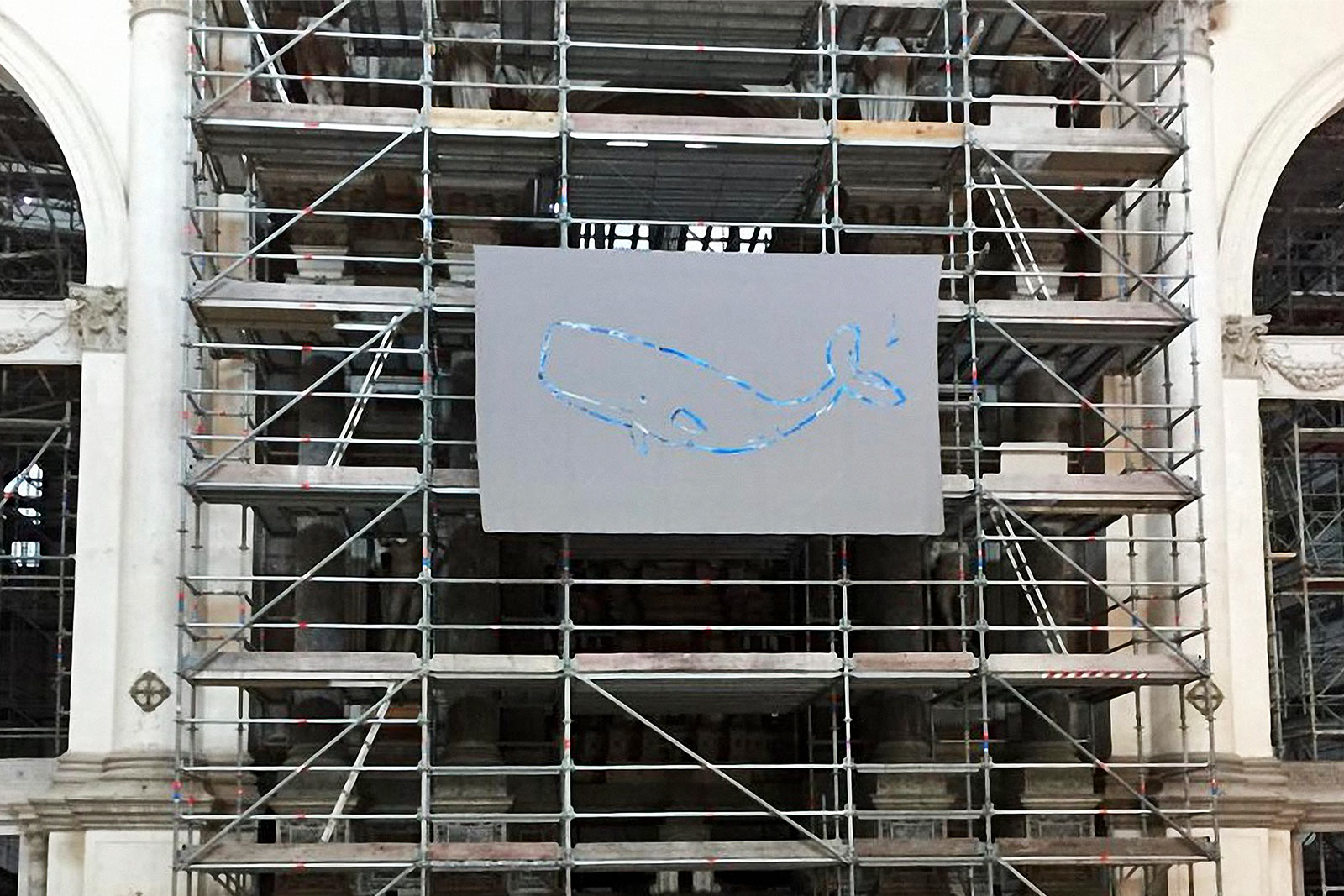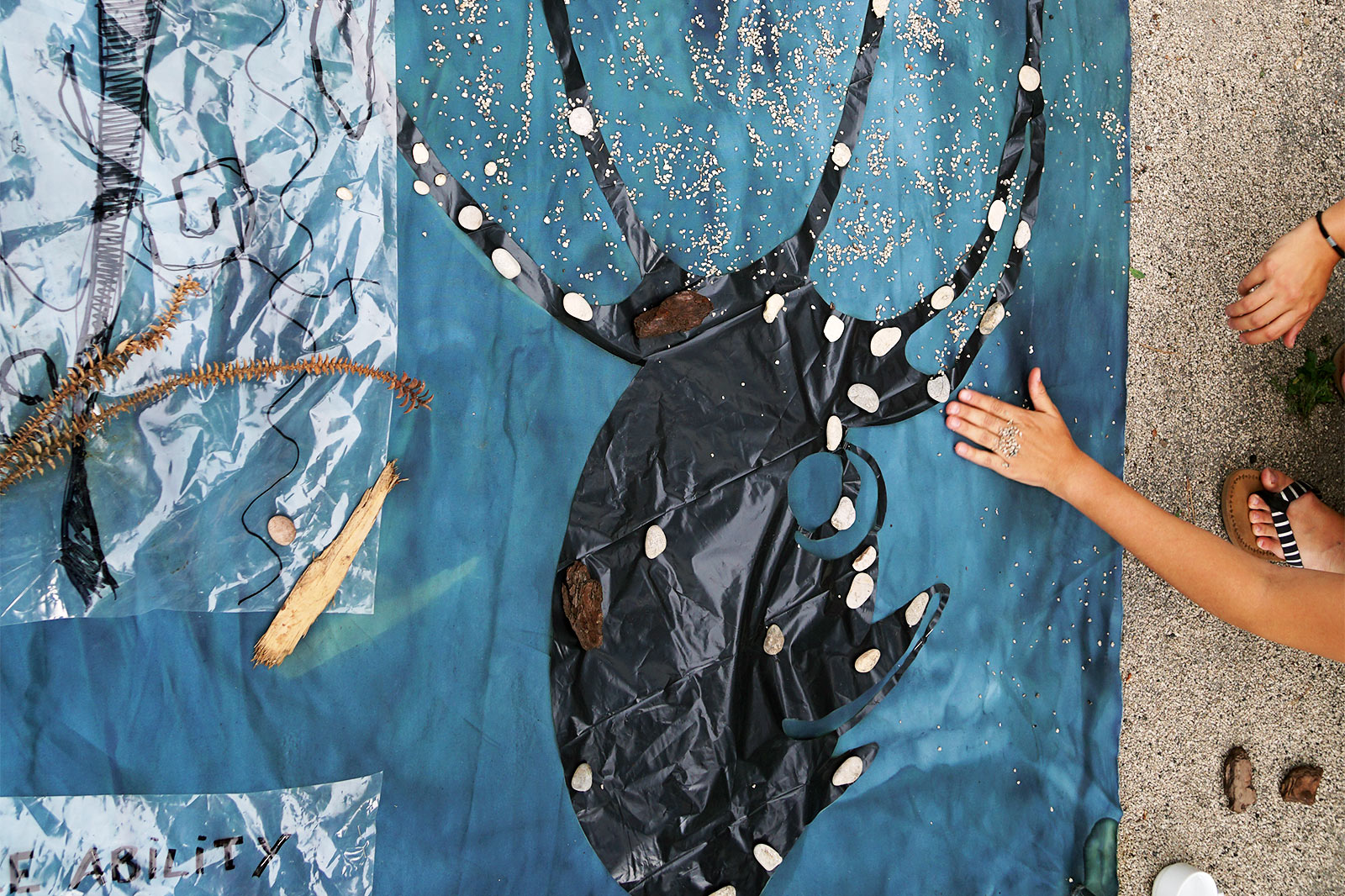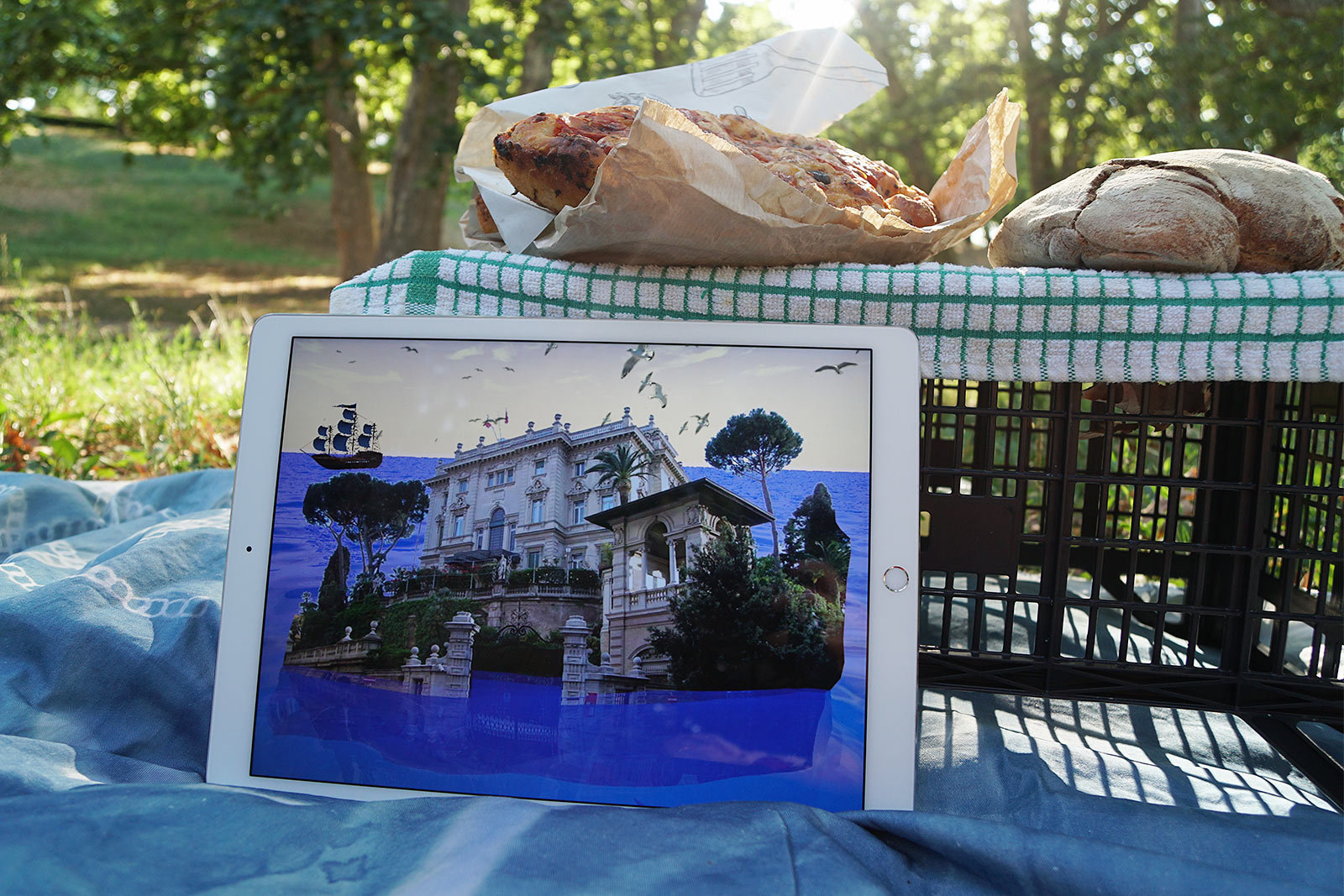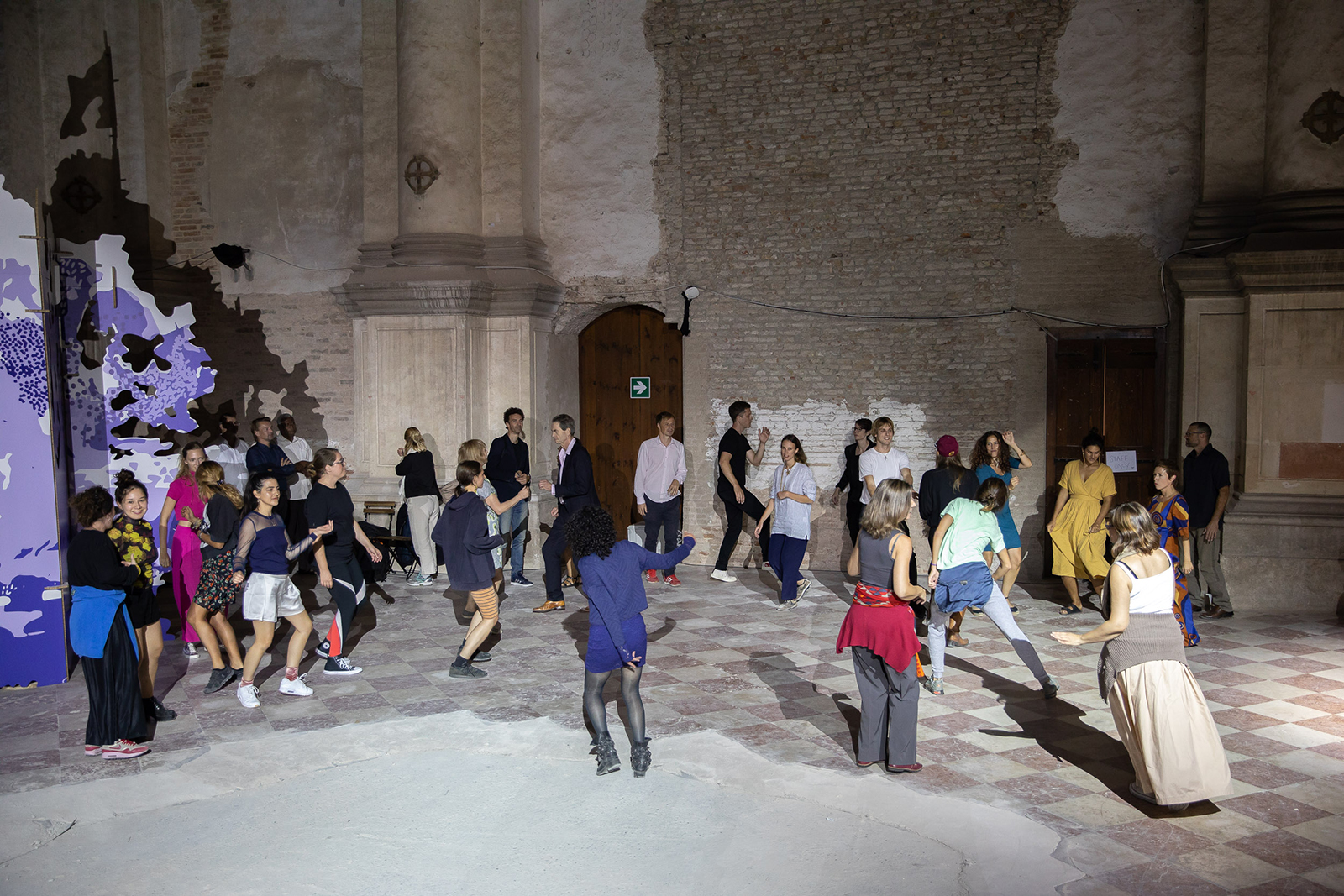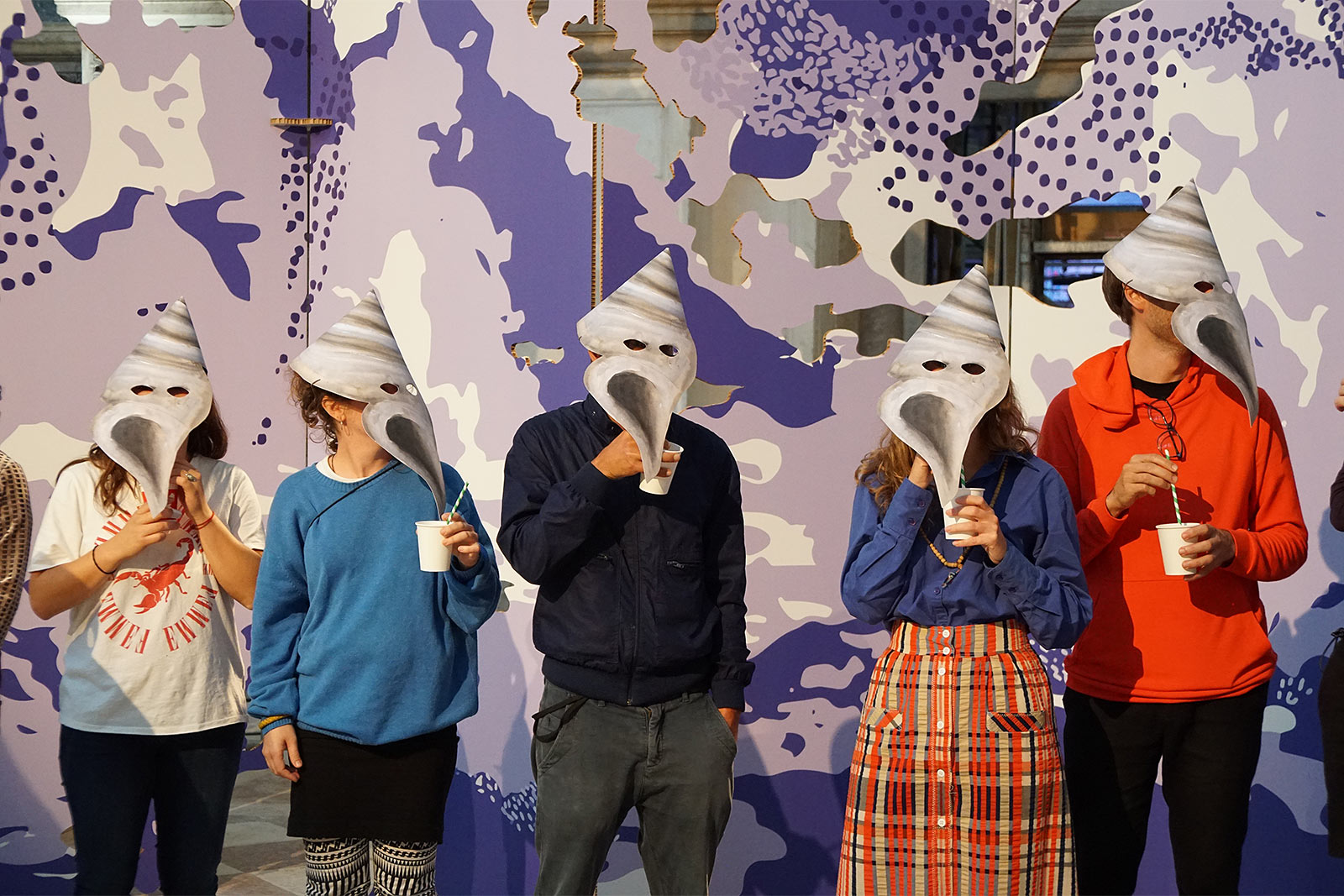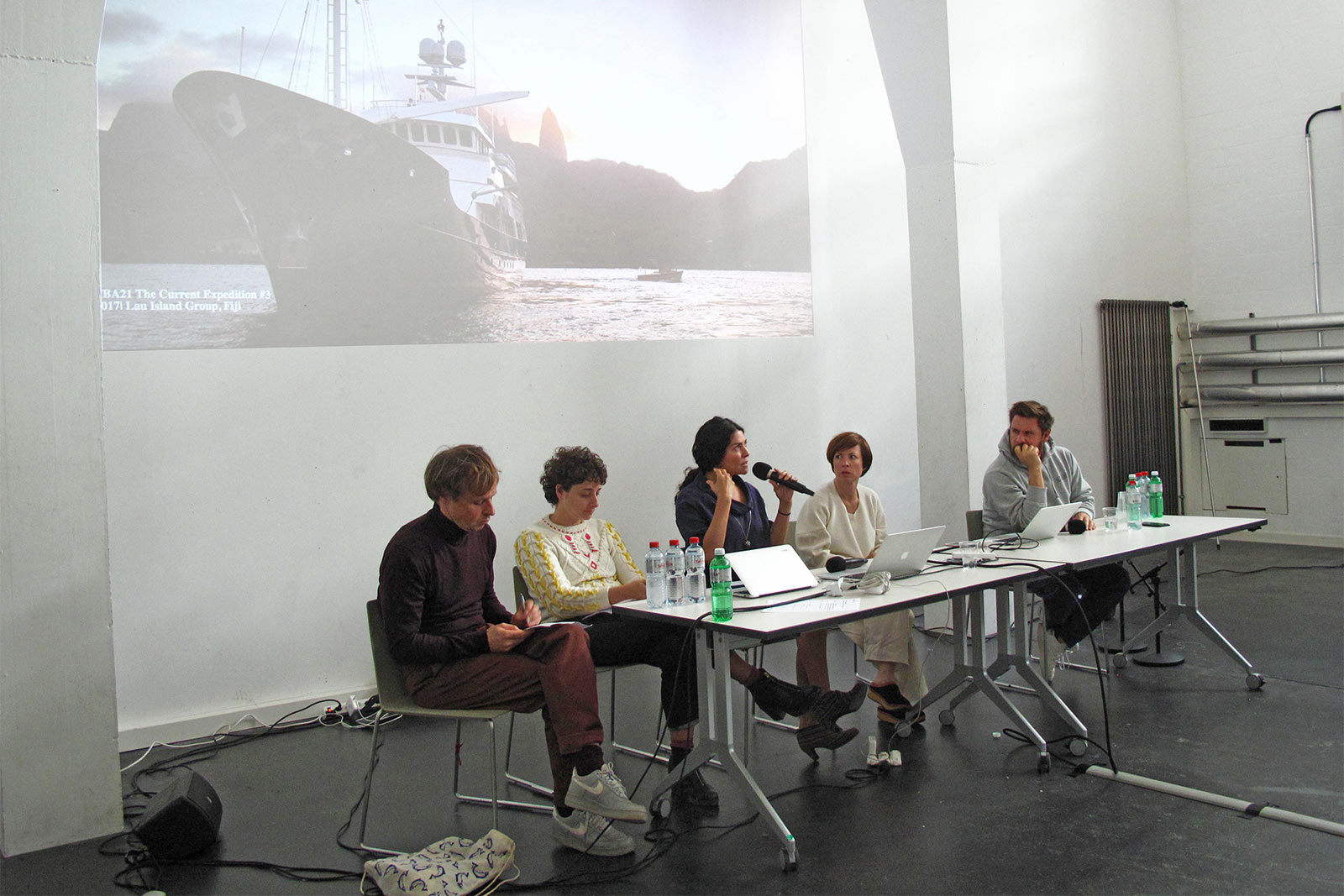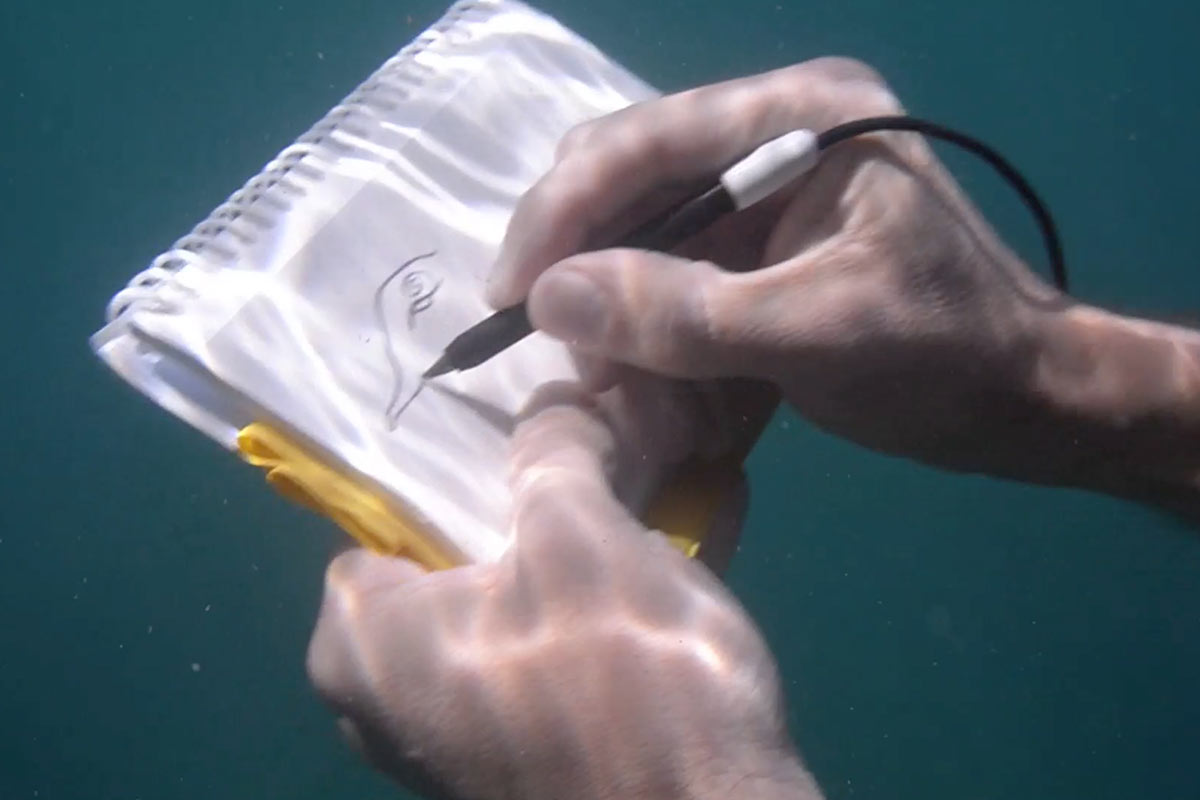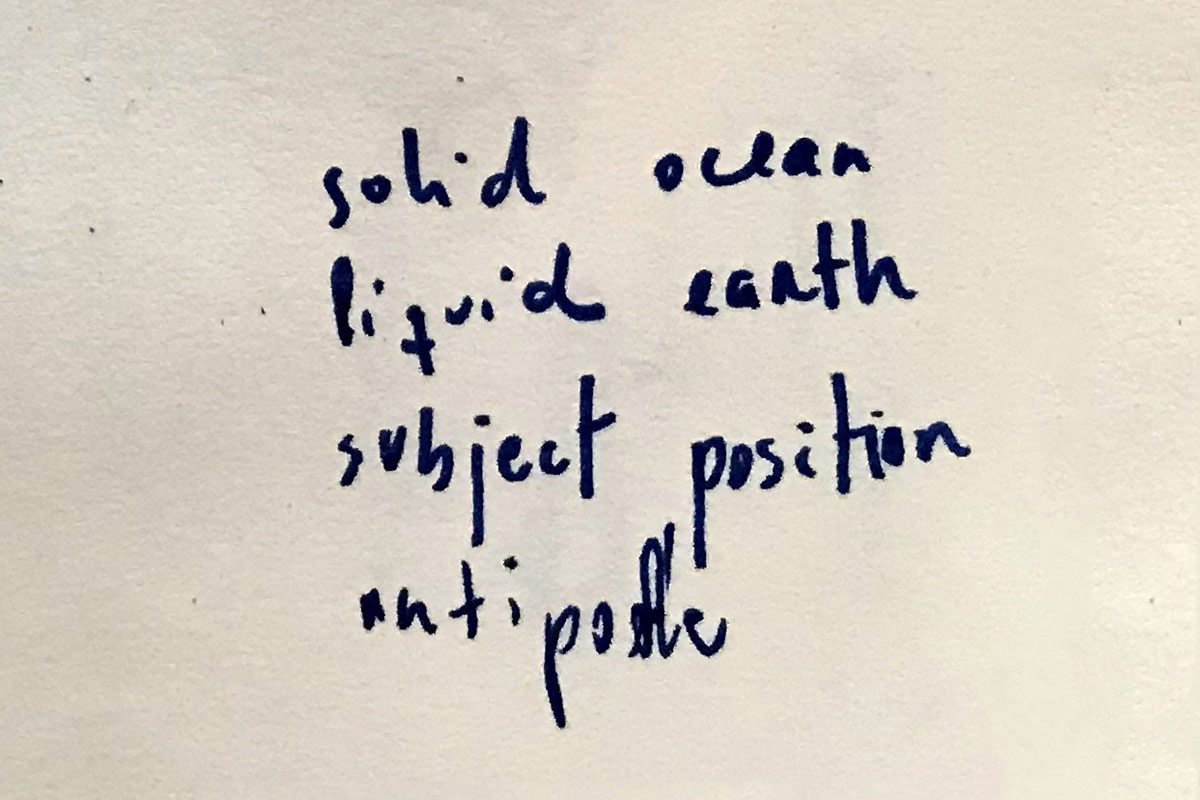Art Is Nature
Seminare, öffentliche Vorträge, Symposien, Summer Schools
In Nachfolge unserer Programme Art Is Science und Art Is Ocean haben wir im Frühjahr 2020 eine neue Reihe von Seminaren, öffentlichen Vorträgen und Symposien gestartet, die sich dem Thema Natur widmet. Diese Serie führt das wachsende Interesse an Forschung, Erfahrung und an der Art und Weise, wie Künstler und Künstlerinnen die Natur und jene Disziplinen erforschen, die sie traditionell studieren, weiter. Sie setzt auch unsere Zusammenarbeit mit der TBA21–Academy fort, einer Stiftung, die sich zum Ziel gesetzt hat, Künstler und Künstlerinnen und Wissenschaftler*innen die Möglichkeit zu geben, neue Arten des Denkens von den Meeren zu entwickeln, sowie einen Raum innerhalb von Bildung und Kunst zu schaffen, um entscheidende Fragen über die Zukunft des Lebens anzugehen.
Wolken und Wald
Ein Gespräch mit Yvonne Volkart und Lubna Dada
Moderation: Michael Hiltbrunner
Eine Kollaboration von Plants_Intelligence. Learning Like a Plant und Rehmann Museum
Sonntag, 4. Mai 2025, 15:00
Rehmann Museum, Laufenburg
Zwei Forscherinnen mit unterschiedlichem Hintergrund diskutieren Fragen zur Intelligenz der Pflanzen, und wie wir in Kommunikation mit ihnen kommen können. Wie können wir bei einem Wald wahrnehmen, ob er Stress hat? Was sagen uns Wolken und Aerosole darüber? Und wie geht die Kunst damit um? Diese Veranstaltung ist Teil der Ausstellung Technologien der Zukunft. Vanessa Billy, Brodie Ellis, Paul Schatz im Rehmann-Museum sowie des SNF-Forschungsprojektes Plants_Intelligence. Learning Like a Plant. Sie legt nahe, dass wir parallel zu den Investitionen in künstliche Intelligenz auch unser Verständnis der natürlichen Intelligenz verbessern sollten.
Yvonne Volkart, Leiterin Forschung am Institut Kunst Gender Natur HGK Basel FHNW initiierte das vom Schweizerischen Nationalfonds unterstütztes Forschungsprojekt Plants_Intelligence. Learning Like a Plant zur Intelligenz von Pflanzen. Sie ist Autorin von Technologies of Care. From Sensing Technologies to an Aesthetics of Attention in a More-than-Human World (Zürich 2023).
Nach Studien im Libanon und in Finnland forscht die Atmosphärenwissenschaftlerin Lubna Dada am Paul Scherrer Institut in Villigen zur Entstehung von Wolken und dem Verständnis von Bioaerosolen – etwa Pollen oder winzigen Teilchen, die sich aus pflanzlichen Düften in der Luft bilden – und sieht sie als Kommunikationsmittel der Pflanzen.
unter pflanzen
Eine Kollaboration von Plants_Intelligence. Learning Like a Plant und Museum Sinclair-Haus Kuratiert von Kathrin Meyer und Yvonne Volkart, mit Moritz Ohlig und Sophie Olivotto
Eröffnung Sonntag 16. März 2025, 11:00
Ausstellung 16. März – 17. August 2025
Museum Sinclair-Haus, Bad Homburg v.d. Höhe
Die Ausstellung und das Magazin Unter Pflanzen ist eine Kooperation zwischen dem Museum Sinclair-Haus in Bad Homburg und dem SNF-Forschungsprojekt Plants_Intelligence. Learning Like a Plant, geleitet von Yvonne Volkart, des Institut Kunst Gender Natur HGK Basel FHNW. Das Projekt Unter Pflanzen wird von Kathrin Meyer und Yvonne Volkart kuratiert, mit Moritz Ohlig und Sophie Olivotto, und markiert den Abschluss des SNF-Forschungsprojektes Plants_Intelligence. Learning Like a Plant.
Wir bewegen uns ständig «unter Pflanzen», doch gehen wir meist achtlos an ihnen vorbei. Die Ausstellung Unter Pflanzen lädt dazu ein, unsere grünen Gefährten neu kennenzulernen – als aktive, spürende, handelnde, kurzum intelligente Wesen. Felipe Castelblanco, Julia Mensch und Rasa Smite widmen sich seit 2022 der künstlerischen Erforschung der Intelligenz von Pflanzen. Ihre Arbeiten sind neben denen von Ayënan Quinchoa Juajibioy und Ursula Damm im Rahmen des SNF-Forschungsprojekts Plants_Intelligence. Learning Like a Plant entstanden und werden in der Ausstellung Unter Pflanzen zusammen mit weiteren Werken von internationalen Künstler:innen erstmals gezeigt. Die ausgestellten Arbeiten bewegen dazu, Pflanzen mit allen Sinnen wahrzunehmen und uns von ihrer jeweiligen Gestalt, ihren Fähigkeiten und ihren Weisen, die Welt zu bevölkern, faszinieren zu lassen.
For Plant Intelligence
Panel: Yvonne Volkart und Team Plants_Intelligence
(Felipe Castelblanco, Julia Mensch, Rasa Smite)
Keynote von Paco Calvo
Beitrag von Ayênan Quinchoa Juajibioy
Freitag 18. Oktober 2024, 18:00
Aula D 1.04, Hochhaus, HGK Basel FHNW
In Englisch
Eintritt frei und offen für alle
Als Teil des Mesh Festival
16. – 20. Oktober 2024
meshfestival.ch
Der gegenwärtige Hype um KI – die im Prinzip nur ressourcenintensives, auf Data Mining und Brute Force beruhendes Rechnen ist – lässt uns vergessen, dass es ganz andere, viel «effizientere» und lustvollere Formen von Intelligenz gibt: Formen, die offen sind für die Vielheit der Wesen der Erde, die Beziehungen und spielerische Formen speziesübergreifender Allianzen schaffen. Besonders Pflanzen, diese missachteten Geschöpfe, überraschen durch ihre ausgeklügelten Fähigkeiten mit den ökologischen Gegebenheiten umzugehen. Im Zentrum dieses Panels steht die Frage, wie Pflanzen spüren und prozessieren, entscheiden und handeln. Was bedeutet das? Was können Menschen davon lernen? Und warum ist das relevant für Kunst, Technik, Wissenschaft und Gesellschaft?
Das Panel For Plant Intelligence @ Mesh Festival wird zudem von einem gleichnamigen Workshop begleitet, der am Freitag 18. Oktober und Samstag 19. Oktober 2024 am Institut Kunst Gender Natur HGK Basel FHNW stattfindet. Interessierte sind willkommen → Anmeldung und weitere Informationen
Das Forschungsprojekt Plants_Intelligence wird vom Schweizerischen Nationalfonds SNF gefördert und ist dem Institut Kunst Gender Natur HGK Basel FHNW angegliedert. Yvonne Volkart, Felipe Castelblanco, Julia Mensch und Rasa Smite bilden das Team von Plants_Intelligence.
Interspecies Love
Panel mit Monica Gagliano, Wanuri Kahiu, Bo Zheng
Kuratiert und moderiert von Yvonne Volkart
Als Teil von Kinship In Transformation
Art-Science-Serie
28. Mai 2024, 16:00 – 20:00
Istituto Svizzero, Rom
Die Narrative von Verwandtschaft («kinship»), Liebe und Netzwerken der Fürsorge sind tief in den jeweiligen sozialen Strukturen und kulturellen Systemen verwurzelt. In der westlichen Welt und darüber hinaus sind deren Definition und Vorstellungen eng mit einer kapitalistischen und heteronormativen Gesellschaftsstruktur verbunden, welche die Aufrechterhaltung von Privilegien für einige und das Fortbestehen von Ungleichheiten für andere begünstigt hat. Die Veranstaltung Kinship In Transformation lädt Künstler:innen und Forscher:innen aus unterschiedelichen Disziplinen und künstlerischen Praktiken dazu ein, ihre Überlegungen und Arbeiten vorzustellen und alternative Erzählungen über Verwandtschaft und Liebe zu entwickeln, die neue Perspektiven eröffnen können.
Wie können wir über Verwandtschaft in neuen Begriffen nachdenken und ihre unzähligen möglichen Formen und ihr sich ständig veränderndes Wesen anerkennen? Und was können uns Beziehungen zwischen den Arten sagen wenn wir über die Sphäre des Menschlichen hinaus denken?
Das Panel Interspecies Love ist Teil der Veranstaltung Kinship In Transformation. Interspecies Love ist eine Kooperation zwischen dem Istituto Svizzero und dem Institut Kunst Gender Natur HGK Basel FHNW, unterstützt durch den Schweizerischen Nationalfonds SNF.
Plants Intelligence – ein neuer Blick auf Pflanzen
Gespräch mit Monika Messmer und Rasa Smite
Moderiert von Riikka Tauriainen
Sonntag 14. April 2024, 14:00 - 16:00
Rehmann Museum, Laufenburg
Monika Messmer, Forschungsinstitut für biologischen Landbau FiBL, Frick, und Rasa Smite, Künstlerin und Forscherin, Institut Kunst Gender Natur, HGK Basel FHNW, diskutieren das Schweizerische Nationalfonds-Projekt Plants_Intelligence. Learning Like a Plant.
Monika Messmer geht dabei der Frage nach, wie Pflanzen Allianzen schmieden. Sie wird auf die Züchtungsforschung des FiBL eingehen: Dort wird untersucht, wie Pflanzen mit den Bodenmikroorganismen interagieren. Dabei wird sie erklären, was die «Holobiontentheorie» ist. Der wissenschaftliche Begriff bezeichnet die Theorie, dass alle Lebewesen durch symbiotische Beziehungen existieren, voneinander abhängen und als Ganzes zusammenleben.
Rasa Smite berichtet über das Schweizerische Nationalfonds-Projekt Plants_Intelligence. Learning Like a Plant. Das Team Plants_Intelligence fragt aus der Perspektive der Kunst, ob das Erkennen pflanzlicher Intelligenz zu anderen Methoden der Wissensgenerierung, des Zusammenlebens, der Züchtung von neuen, «intelligenten» Formen der Pflanzen- und Agrarkultur führt.
Das Gespräch wird von Riikka Tauriainen moderiert (Künstler:in aus der Ausstellung Schimelrych bis Chrottehalde: Kunst und Natur in Laufenburg im Jurapark Aargau und dem Rehmann Museum Laufenburg).
Agency of Plants
Symposium
Im Rahmen der Ausstellung Parlament der Pflanzen II
Mit Beiträgen von Ursula Biemann, Roosa Laitinen, Nadja Mazouz, Julia Mensch, Christiane Meyer-Stoll, Uriel Orlow, Linda Schädler, Patrícia Vieira und Yvonne Volkart sowie von Studierenden des Institut Kunst Gender Natur HGK Basel FHNW
21. September 2023, 10:00 – 20:00
Kunstmuseum Liechtenstein, Vaduz
kunstmuseum.li
In der gegenwärtigen ökologischen Krise, die auch eine soziale, psychologische und politische Krise ist, wächst die Erkenntnis, dass die Menschen sich auf neue Weise mit nicht-menschlichen Wesen verbinden und verbünden müssen. Insbesondere Pflanzen – die lange Zeit als anders, fremd, unbeweglich und passiv wahrgenommen wurden – erhalten neue Aufmerksamkeit. Pflanzen kümmern sich nicht nur um menschliche und nicht-menschliche Tiere, traditionelle landwirtschaftliche Praktiken und neuere botanische Forschungen zeigen auch, dass Pflanzen über ein äusserst reiches Sensorium verfügen: Sie sprechen, kommunizieren, treffen Entscheidungen, sind reaktions- und anpassungsfähig und tragen zur Gestaltung der Umweltbedingungen bei. Kurz gesagt, Pflanzen haben eine Handlungsfähigkeit, sie haben eine «erweiterte Kognition» (wie der Pflanzentheoretiker Michael Marder feststellte) und können somit als intelligente und «aktive» Subjekte verstanden werden.
Was bedeutet das genau? Was bedeutet es, dass Pflanzen «Rechte haben»? Und welche Auswirkungen hat dies auf «unseren» Umgang mit beziehungsweise unser Zusammenleben mit Pflanzen? Das Symposium Agency of Plants greift diese Fragen auf und geht ihnen in verschiedenen Vorträgen und gemeinsamen Diskussionen nach.
Kosten: Museumseintritt
Anmeldung erforderlich → kunstmuseum.li
Herzlichen Dank an Roman Kurzmeyer, Dozent am Institut Kunst Gender Natur HGK Basel FHNW, für die Vorbereitung der Teilnahme von Studierenden.
Das Symposium wird ermöglicht durch einen Beitrag der H.E.M. Foundation, Vaduz.
Eine Kooperation des Kunstmuseum Liechtenstein und des Institut Kunst Gender Natur HGK Basel FHNW, mit Unterstützung des Schweizerischen Nationalfonds und der Graphischen Sammlung ETH Zürich.
Parlament der Pflanzen II
SNF-Projekt Plants_Intelligence. Learning like a Plant
Yvonne Volkart (Leitung), Felipe Castelblanco, Julia Mensch, Rasa Smite
Zu Gast bei Parlament der Pflanzen II
Eröffnung Donnerstag 4. Mai 2023, 17:30
Ausstellung 5. Mai – 22. Oktober 2023
Kuratiert von Christiane Meyer-Stoll und Annett Höland in Zusammenarbeit mit Hans-Jörg Rheinberger
Kunstmuseum Liechtenstein, Vaduz
Im Rahmen der Ausstellung Parlament der Pflanzen II kooperiert das Institut Kunst Gender Natur HGK Basel FHNW mit dem Kunstmuseum Liechtenstein. Das Forschungsprojekt Plants_Intelligence. Learning like a Plant zeigt dabei die gemeinsamen Interessen von Kunst und Wissenschaft.
Die Ausstellung Parlament der Pflanzen II verleiht den Pflanzen eine Stimme. Sie zeugt von einem neuen Blick auf diese Wesen, mit denen unser Überleben zutiefst verbunden ist. Ihre naturwissenschaftliche Betrachtung erfährt seit längerem einen Paradigmenwechsel, der sich auch in den künstlerischen Beiträgen widerspiegelt. Anknüpfend an die Ausstellung Parlament der Pflanzen (2020/2021) entfaltet Parlament der Pflanzen II ein Netzwerk an Kooperationen aus verschiedenen Disziplinen, mit Gastbeiträgen als Inserts. Eines davon ist das SNF-Forschungsprojekt Plants_Intelligence. Learning like a Plant (Felipe Castelblanco, Julia Mensch, Rasa Smite, Yvonne Volkart, Leitung) in Zusammenarbeit mit Vertreter:innen aus verschiedenen Wissensgebieten.
Parlament der Pflanzen II veranschaulicht das Prinzip der Symbiose als gesellschaftliches Gegenbild zum parasitären Umgang mit der Natur. Neue Erkenntnisse zur Pflanzenwelt finden ebenso Eingang wie das Wissen indigener Kulturen, Fragen zur Kolonial- und Zeitgeschichte, zum Umgang mit Ressourcen oder unserer Wahrnehmung von Zeit. Die Ausstellung wird von Christiane Meyer-Stoll und Annett Höland in Zusammenarbeit mit Hans-Jörg Rheinberger, Molekularbiologe und Wissenschaftshistoriker, kuratiert.
Plants_Intelligence. Learning like a Plant
Plants_Intelligence.Learning like a Plant (2022 – 2025) ist ein neues Forschungsprojekt des Institut Kunst Gender Natur HGK FHNW, das vom Schweizerischen Nationalfonds SNF für vier Jahre gefördert wird. Das von Dr. Yvonne Volkart (Leitung Forschung am Institut Kunst Gender Natur) geleitete Projekt fragt aus der Perspektive der Kunst, ob die Anerkennung vegetabiler Formen von Intelligenz zu anderen Methoden der Wissensgenerierung, des Zusammenlebens, von Züchtung und letztlich zu neuen, «intelligenten» Formen der Pflanzen- und Agrarkultur führt.
Zum Projektteam gehören neben Dr. Yvonne Volkart (Lead, Theorie) Dr. Felipe Castelblanco (Post-Doc, künstlerische Forschung), Julia Mensch (Doktorandin, künstlerische Forschung) und Dr. Rasa Smite (künstlerische Forschung).
Die Forschungspartner*innen von Plants_Intelligence. Learning like a Plant sind ausgewiesene Expert*innen im Diskurs der Pflanzenintelligenz. Sie sind zuständig für die inhaltliche-methodische Beratung und interdisziplinäre Auseinandersetzung. Mit den Kooperationspartner*innen wird die Umsetzung kuratorischer Projekte entwickelt und realisiert. Partner*innen in der Schweiz sind Dr. Monika Messmer (Gruppenleiterin Pflanzenzüchtung, Forschungsinstitut für biologischen Landbau FiBL, Frick), Dr. Ines Goldbach (Direktorin Kunsthaus Baselland) und Sabine Himmelsbach (Direktorin Haus der elektronischen Künste HeK, Basel). Zu den internationalen Partner*innen zählen Hernando Chinoy (Rechtlicher Repräsentant Indigenous Territorial Entity Atun Wasi Iuiai-AWAI, Inga Nation, CO), Prof. Ursula Damm (Leiterin Mediale Environments, Bauhaus-Universität Weimar, DE), Prof. Dr. Birgit Schneider (Wissenskulturen und mediale Umgebungen, Institut für Künste und Medien, Europäische Medienwissenschaft, Universität Potsdam, DE), Prof. Dr. Katja Tielbörger (Leiterin Vegetationsökologie, Universität Tübingen, Direktorin Botanischer Garten Tübingen, DE), Heraldo Vallejo (Rechtlicher Repräsentant FUNDACION TIERRA DE SELVA y la comunidad NODO DE PENSAMIENTO ANDINOAMAZONICO, MUNICIPIO DE MOCOA, CO), Marcos Ezequiel Filardi (Direktor Museo del Hambre, Buenos Aires, AR), Kathrin Meyer (Direktorin Museum Sinclair-Haus, Stiftung Kunst und Natur GmbH, Bad Homburg, DE) und Dr. Raitis Smits (Direktor Rixc, Riga, LV).
Weitere Informationen: plants-intelligence.ch
PHENOMENAL OCEAN
Leitung Chus Martínez
Summer School #2
23. September – 27. September 2019
Mit Chus Martínez, Markus Reymann, Teresa Solar, Lena Maria Thüring
María Montero Sierra, Marion Ritzmann
Öffentlicher Anlass: The Current II Convening #2
28. September 11:00 – 18:00
Julieta Aranda, DIS, Amanda Coulson, Elena Mazzi, Skye Morét, Francesca Mussi, Katrin Niedermeier, Carrol Khadija, Ingo Niermann, Tabita Rezaire, Marzia Rover, Teresa Solar, Lena Maria Thüring, Alexander Tarakhovsky, Studierende Art Institute HGK FHNW / School for Curatorial Studies Venice
Ocean Space, Chiesa di San Lorenzo, Campo San Lorenzo, Venedig
academy.tba21.org
→ Video: Beitrag der Studierenden der Summer School
→ Videoarchiv
Phenomenal Ocean
The Podcast
A podcast series produced by the Art Institute and TBA21–Academy.
We have been collaborating with TBA21–Academy for some years now in our common pursuit of a non-binary understanding of the coexistence of culture and nature, of us and the ocean.
The first six episodes of Phenomenal Ocean were released in spring 2020. In addition to Chus Martínez, head of the Art Institute, and Markus Reymann, director of TBA21–Academy, the conversations include marine scientists Skye Morét and Marzia Rovere, geneticist Alexander Tarakhovsky, writer Ingo Niermann, and Francesca Mussi, a researcher in international law, as well as artists Julieta Aranda, Elena Mazzi, Marco Roso, Teresa Solar, and Lena Maria Thüring. The recordings for Phenomenal Ocean were made during The Current II, Summer School and Convening #2: Phenomenal Ocean, both held at TBA21–Academy at Ocean Space in Venice in September 2019.
Listen to the podcast here or subscribe to the channel on Apple Podcasts.
Summer School 2019
The Rare Ability to Become Ocean — A method for Ocean literacy
Istituto Svizzero, Rome
14 – 21 July, 2019
Public program Friday 19 July 2019 6 to 9pm
The question of Nature has been placed at the core of the Art Institute’s curricula in Basel for more than three years already. We became aware that the questions related to Nature and those on Gender contain interchangeable notions in many respects. For this reason, we have been inviting special guests to our seminars such as scientists, philosophers and artists, who are capable of creating a context where issues of nature as well as climate related topics can be addressed together with the rise of social movements.
Historically, social justice and natural justice were different categories. This has contributed to the general perception that we could prioritize one over the other. Yet, the way we advocate for awareness, change and the rights of Nature has been using far too much the form of a patriarchal order: «Save the Ocean!» This reveals a hierarchy over the elements as well as the acknowledgement that the Ocean cannot save itself from us.
Therefor it would be wrong to think that when ones say “ocean,” one names a “subject.” One should be more radical and know that to say “ocean” today is to say “art.” Art without the burden of institutional life, without the ideological twists of cultural politics, art as a practice that belongs and should belong to the artists, art facing the urgency of socializing with all those who care about life. In other words, to say ocean is to replace the historical notion of the avant-garde with a code that is not determined by form and the invention of new gestures, but by an investigation into the substance of life, identifying this as the mission of art.
The aim of the meeting is to understand and respond to the research conducted in the ocean as in creating a situation to convey this through art. Together we will try to develop a new way of thinking about the seas, as well as a space inside education and art to address crucial questions on the future of life.
The Summer School is lead by Filipa Ramos with support of Alice Wilke as Research Assistant. Activities include a seminar by Amy Franceschini, a studio visit with Cesare Piestroiusti and a visit to the environmental organization Marevivo.
Public program
Friday 19 July, 2019, 6 to 9pm
Picnic at Villa Borghese, Rome
with performances, environmental actions, sound contributions and readings
THE WAVES OF THE OH!S
AND THE AH!S
The Current II led by Chus Martínez
24 – 27 September 2018, Summer School #1
28 – 29 September 2018, Convening #1
Chiesa di San Lorenzo, Venice, Italy
TBA21–Academy, in collaboration with the Art Institute HGK FHNW, presents two days of performances and lectures curated by Chus Martínez, expedition leader of the second cycle of The Current; the first of three annual Convenings exploring the theme Spheric Ocean.
With Diva Amon, Julieta Aranda, Cecilia Bengolea, Claudia Comte, Francesca von Habsburg, Marah Hardt, Donna Kukama, Chus Martínez, Eduardo Navarro, Ingo Niermann, Markus Reymann, Mathilde Rosier, Georgia Sagri, Christina Tony.
Participants to the Summer School #1 from the Art Institute include: Nora Berman, Anastassia Chaguidouline, Anna Diehl, Michael Etzensperger, Martina Henzi, Christopher Hunter, Jain Nikhil, Danielle Küchler, Till Langschied, Kaspar Ludwig, Simone Steinegger, and Jan van Oordt. Raffaella Naldi Rossano, and Luca di Bernardo from Fondazione Morra, Napoli, as well as Claudia Cisnero, Circe Irasema, and Berenice Olmedo from Fundación Alumnos47, México DF. The summer school is mentored by Ingo Niermann, Mathilde Rossier and Georgia Sagri, with the special participation of Dayne Buddo and Joan Jonas.
TBA21–Academy leads artists, scientists, and thought-leaders on expeditions of collaborative discovery. Founded by Francesca von Habsburg and led by Director Markus Reymann, the Academy is dedicated to fostering a deeper understanding of the ocean through the lens of art and to engendering creative solutions to its most pressing issues. TBA21–Academy commissions interdis- ciplinary research that catalyses engagement, stimulates new knowledge, and inspires artistic production. Established in 2011, the nonprofit’s programme is informed by a belief in the power of exchange between disciplines and in the ability of the arts as a vessel for communication, change, and action.
Commissioned and produced by TBA21–Academy
with the support of Art Institute, FHNW Academy of Art and Design, Basel
→ Free admission by registration only: academy.tba21.org
→ Download flyer The Waves of the Oh!s and the Ah!s
ON OCEAN INTELLIGENCE
Master Symposium in collaboration with TBA21–Academy
12 April 2018, Symposium (Open to the public)
13 April 2018, Workshop (Only for master students)
With Julieta Aranda, Fernando García-Dory, Francesca von Habsburg, Ingo Niermann, Chus Martínez, Markus Reymann, Teresa Solar
The new interest in nature is not naming a new trend, but the necessity to expand our public space inhabiting it, not only with the institutionalized presence of art and culture, but with questions that represent a transformation on the way we think about the role of art and artists in the invention of a new ground to sense the future. Nature, and so the Oceans, name a complete revolution in the way we sense, in the way we relate organic and non-organic life, in the way we understand gender, generative life, power and life.
The first day of the symposium will be dedicated to sharing the context and the experience of «To Find the Vegan Lion», TBA21–Academy’s first The Current expedition under the leadership of Chus Martínez that took place March 9 – 24 in New Zealand. Francesca von Habsburg, founder of TBA21 and Markus Reymann, director of TBA21–Academy will introduce the program they initiated almost a decade ago on the relationship of art and artists with the understanding of the Oceans. The participants of this first expedition were: Julieta Aranda, Claudia Comte, Francesca von Habsburg, Eduardo Navarro, Ingo Niermann, Markus Reymann, Albert Serra, Teresa Solar and Roman Bayarri as cameraman. Some of them will be present this day and will share their experiences but also discuss the general conditions of a program aimed at creating a different relation with scientists, with the environment and the role art and artists play in expanding traditional notions of experience.
SPHERIC OCEAN
The Current II led by Chus Martínez for TBA21–Academy
An expedition to North Islands, New Zealand
academy.tba21.org/sphericocean
9 – 24 March, 2018
With Julieta Aranda, Claudia Comte, Francesca von Habsburg, Eduardo Navarro, Ingo Niermann, Markus Reymann, Albert Serra, Teresa Solar
I decided to name this three-year cycle on artistic intelligence, philosophy, science and nature the Spheric Ocean. The Ocean is spherical because it is not beside the earth nor below it, but all around it. Its form is not what our eyes see, or not only. Its reality cannot be separated nor told apart from anything else on the lived earth, and therefore it poses a demand on us: the need for a philosophy to help us exercise the Ocean. It is difficult to describe what we are aiming for. I would say we are aiming for a philosophy more than anything else. It would be wrong to think that when one says «Ocean», one is naming a «subject». One could be as radical as stating that to say «Ocean» is, today, to say «art». Art without the burden of institutional life, without the ideological twists of cultural politics, art as a practice that belongs and should belong to the artists, art facing the urgency of socializing with all those that care about life. Or, in other words, to say «Ocean» is to replace the historical notion of the avant-garde with a code that is not determined by form and the invention of new gestures, but by an investigation of the substance of life, identifying this as the mission of art.



